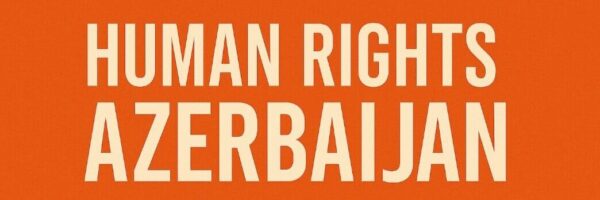Economist Fazil Gasimov, who was sentenced to nine years in prison by the Baku Court of Serious Crimes on March 13, 2025, reportedly began a hunger strike on May 10 while being held in the Umbaki Penitentiary Complex.
According to available information, Gasimov launched the strike in protest against violations of his rights within the facility.
During the hearing of his appeal on May 21, Gasimov stated that he was placed in solitary confinement (commonly referred to as a “karser” or disciplinary cell) as a result of his hunger strike, and was told that he would only be released from the cell if he ended the protest.
Legal Context
Under Azerbaijani law, solitary confinement in penitentiary institutions and remand facilities is intended as a disciplinary measure. The maximum duration is up to 7 days for remand facilities and up to 15 days for penitentiary institutions, according to the Code on Execution of Punishments. The total duration in a year must not exceed 60 days.
Disciplinary confinement can only be imposed based on a justified decision of the facility head, as outlined in internal regulations. The law limits the use of this measure to specific circumstances, including repeated violations of internal rules, defiance of lawful orders, or minor acts of hooliganism.
There is no information indicating that Fazil Gasimov committed any such violations. Neither the Penitentiary Service nor the management of Umbaki has provided a legal justification or refuted Gasimov’s claims.
Importantly, refusal to eat is not classified as a disciplinary violation under the law and does not meet the criteria outlined for placement in solitary confinement.
Guidelines on Hunger Strikes
The Ministry of Justice’s official guidelines on managing hunger strikes prescribe that inmates refusing food should be medically supervised, placed in the facility’s medical unit or isolated in special conditions—not in disciplinary cells.
Gasimov’s placement in solitary confinement appears inconsistent with these regulations. Furthermore, media reports indicate that as of June 4, 2025, he remained in solitary, exceeding the 7-day legal maximum for pretrial detainees.
The European Committee for the Prevention of Torture (CPT) and local watchdogs have repeatedly raised concerns about the use of disciplinary cells in Azerbaijan, emphasizing that placing hunger-striking inmates in such conditions is inappropriate and may amount to ill-treatment.
The Ombudsman’s 2023 report noted sanitation issues, overcrowding, and improper use of solitary confinement for minor infractions. Media reports and testimonies describe even harsher conditions, with allegations of continued abuse, especially against political prisoners.
Violation of Rights
Gasimov’s solitary confinement, used to coerce him into ending his protest, violates both domestic regulations and international human rights standards. The European Court of Human Rights has found Azerbaijan in violation of Article 3 of the European Convention on Human Rights (prohibition of torture, inhuman or degrading treatment) in similar cases (e.g., Insanov v. Azerbaijan, Aliyev v. Azerbaijan).
While Azerbaijani authorities adopted guidelines aimed at addressing hunger strikes from a therapeutic perspective, Gasimov’s case illustrates persistent punitive practices.
Conclusion
Hunger strikes impose specific obligations on prison authorities: isolation from other inmates for health reasons, daily medical monitoring, and humane treatment. Solitary confinement is not a lawful or appropriate response.
Gasimov’s continued placement in a disciplinary cell since May 21, and the condition that he end his hunger strike to be released, represent a violation of Azerbaijani law and international human rights obligations. The harsh conditions and prolonged solitary confinement amount to inhuman and degrading treatment.

